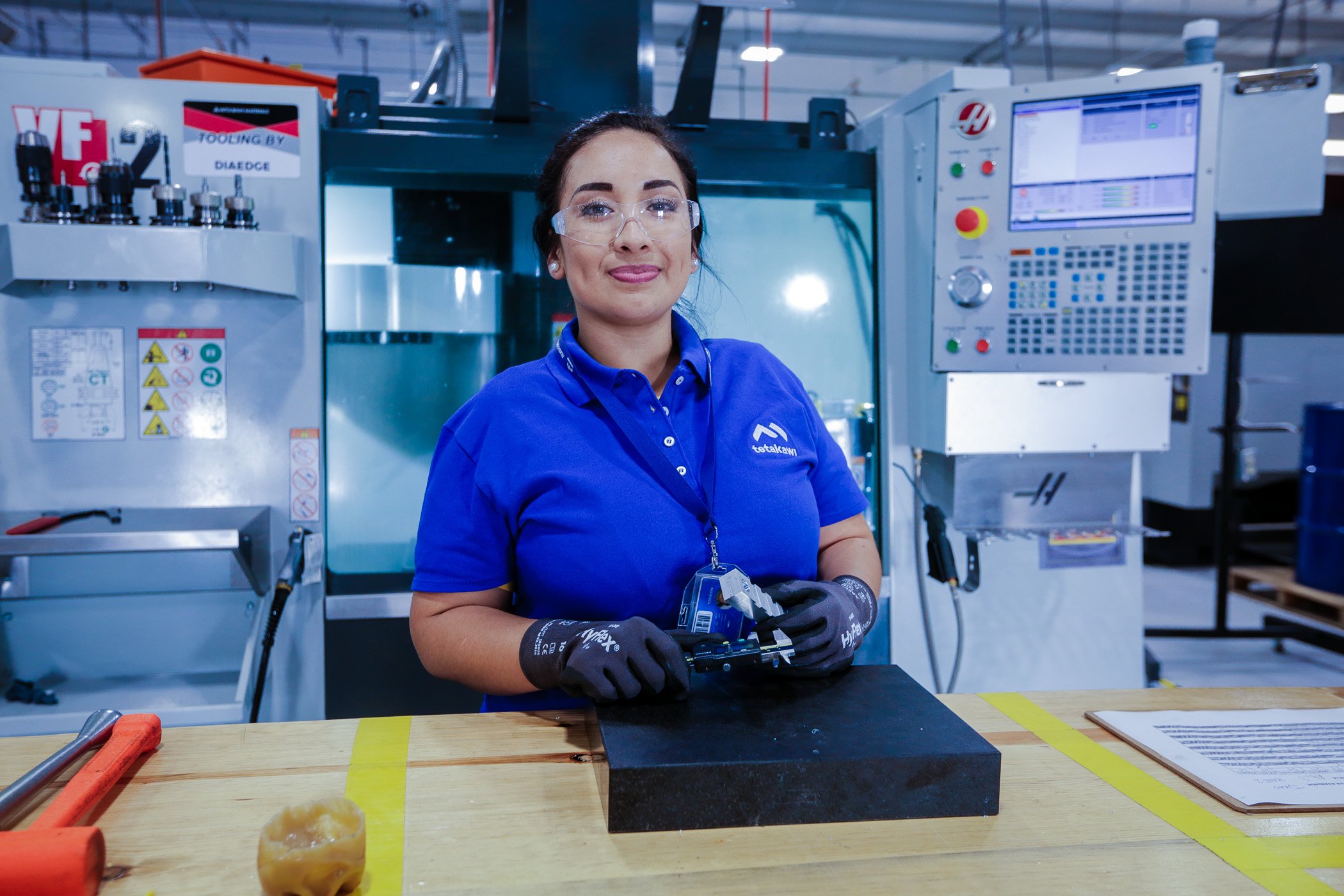Mexico has been a successful manufacturing hub for years, but recently, there has been a surge of interest in offshore manufacturing in the country. As the world's ninth-largest recipient of foreign direct investment, Mexico received a whopping USD $35.29 billion in 2022, with a significant portion of it going to the manufacturing sector.
The variety of Mexico offshoring benefits presents a compelling case for businesses looking to enhance their global competitiveness. From significant cost reductions in labor and operations to the strategic advantage of nearshoring in proximity to the US market, Mexico stands out as an attractive destination for offshoring. Furthermore, the country's robust manufacturing ecosystem, supported by extensive free trade agreements and the favorable IMMEX program, facilitates seamless cross-border trade and supply chain integration.
The benefits extend beyond economics, as Mexico's commitment to quality standards and its skilled, bilingual workforce ensure that offshoring operations can achieve excellence in production and efficiency. Embracing these offshoring benefits, companies can not only optimize their operations but also tap into new growth opportunities within the thriving Mexican manufacturing landscape.
When it comes to nearshoring your business to Mexico, here’s a deeper dive into eleven reasons for doing so:
1. Proximity to the U.S. market
Location has always been an advantage to manufacturing in Mexico, but this has become even more pronounced in recent years. In the past, the lower cost of shipping goods from Mexico to the U.S., as compared to shipping from Asia to the U.S., could potentially be offset by a lower cost of labor in other countries. That's no longer a valid argument. As global shipping and supply chain disruptions have grown, manufacturers are finding that Mexico offers an advantage for getting goods to the world's largest consumer market in a timely matter.
Mexico has more than 20 ports on the Atlantic Ocean and 13 on the Pacific Ocean, more than 100 major and international airports, and a robust rail and highway network. One way or another, manufacturers can get products to their customers.
2. Labor availability
Skilled labor shortages have hit the manufacturing industry hard across a number of developed countries. Back in May 2021, The Manufacturing Institute called it a $1 trillion problem with little end in sight, and since then, the problem has only gotten worse.
Mexico's stable demographics have provided a much-needed solution to this challenge. The country's population continues to grow steadily, with a relatively low median age of 28 years old. With ample infrastructure supporting training in education, manufacturers of all types find labor availability a significant enticement for offshore manufacturing in Mexico.
3. Competitive labor costs
The comparatively lower labor cost has long been why manufacturers opt to launch operations in Mexico. Despite recent adjustments to the minimum wage in Mexico, manufacturing wages remain highly competitive. Wages for direct manufacturing labor in the U.S. average between $16.07 and $25.98 per hour, compared to $4.18 to $8.16 per hour in Mexico.
Better still—the quality of goods produced in Mexico equals similar work done in the United States.
4. Geographic diversity
Offshoring manufacturing in Mexico is hardly new, but it is becoming an increasingly important strategy for global companies. Given the supply chain disruptions noted above, more companies are finding it useful to locate factories closer to their targeted consumers. A regional footprint strengthens resiliency in the face of unexpected challenges or factory closures. As research firm BCI Global notes, this regionalized approach also helps global companies gain greater visibility into and variety across local supply chain partners. The result is greater stability for the entire company.
5. Trade advantages
Mexico has more Free Trade Agreements (FTAs) than any other country in the world. That reduces trade barriers to more than 50 countries for companies manufacturing in Mexico.
Among those notable agreements is the USMCA, which links trade in Mexico to the U.S. and Canada. USMCA doesn't just open up trade—it incentivizes manufacturing in and sourcing materials from Mexico. Country of origin requirements in the automotive industry, which require 75% of vehicle content to be made in North America, are meant to incentivize production here despite demands for higher (yet still highly competitive) wages. Given Mexico's already robust automotive industry, this tax advantage is just one of many advantages of growing car production operations in Mexico.
6. Tax incentives
Mexico's economy owes quite a bit to its manufacturing exports, and the federal government has worked to entice foreign investors to consider offshore manufacturing in Mexico. This investment in foreign companies is a useful strategy for creating local jobs. As a result, foreign manufacturers can often secure income, consumption, and import/export tax incentives that help to offset the costs of launching production in a foreign country. One of the primary benefits companies can take advantage of from a tax perspective is the IMMEX Program.
With help from partners well-versed in the local manufacturing industry, some companies can also secure incentives from state governments for selecting specific locations.
7. Industrial economies of scale
Mexico is home to a number of industrial clusters, in which players in key areas locate near one another to maximize advantages. As more companies with similar needs locate near one another, demand grows for things like access to utilities, training facilities and vocational schools, shipping, and freight expertise, and certain professional services.
Mexico's major industrial clusters are centered around automotive manufacturing, aerospace, medical devices, and electronics.
8. Expertise
Mexico was once the place to which manufacturers turned for product assembly. Now companies invest here knowing they'll get expertise in the production of often delicate or complex components. Research and development centers are increasingly taking root in Mexico alongside production factories.
Much of this expertise is supported by the range of educational and vocational institutions dedicated to building up manufacturing know-how. Some Manufacturing Communities and Industrial Parks in Mexico offer onsite training facilities to give companies space to build up employees' skillsets in complex machinery and soft skills.
9. Supports jobs at home
The Tax Foundation, a tax policy nonprofit, explains that foreign direct investment in countries like Mexico ultimately creates jobs in the United States and can even raise U.S. workers' wages and productivity. U.S.-based multinational firms are able to drive a shift in U.S. industries from low-value-added jobs to high-value-added jobs, such as R&D and other service-based activities. Many companies find that the lower costs of labor, real estate, and overall operation in Mexico allow them to reinvest savings back in their home offices.
10. Ease of doing business
Yes, Mexico's proximity to the U.S. makes it easy to ship goods, but it also makes it easy to do business. The convenience of operating in the same or similar time zones makes communication between global headquarters and a Mexico factory efficient. This proximity makes it easy to hop on a flight to visit potential factory sites, inspect production, or meet with prospective partners in Mexico.
And while Mexico's business culture has its own unique nuances, most foreign investors find it easy to navigate social mores and expectations with their Mexican counterparts.
11. Shelter service model minimizes risk
One of the most distinct advantages of offshore manufacturing in Mexico is the IMMEX program, which allows foreign companies to partner with an IMMEX-registered shelter service provider. This not only provides tax benefits but also allows foreign manufacturers to defer risk to the registered Mexican company, which serves as a legal entity of record in Mexico.
In addition to tax advantages, experienced shelter service providers have extensive knowledge of Mexico's regulatory environment, allowing them to assist foreign companies in rapidly obtaining necessary permits and registrations to accelerate their launch. Many shelter service providers can also handle administrative duties, such as HR practices, allowing their clients to concentrate solely on manufacturing success.
Find more advantages in Mexico
While the advantages listed above are common enticements to offshore manufacturing in Mexico, they're not the only reasons to make a move. The truth is that a company will likely face unique advantages that meet its specific needs. It's one reason that Tetakawi offers tailored consulting to help companies maximize their advantages with a well-crafted launch strategy.
Ready to learn more about how you can benefit from a factory in Mexico? Contact Tetakawi today.
Subscribe
Sign up and stay informed with tips, updates, and best practices for manufacturing in Mexico.






